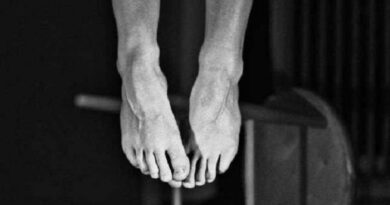Xenophobia’s Lasting Scars: Mental Health Impact on Victims
By Bigboy Madzivanzira
Xenophobia in South Africa has severe and lasting effects on the mental health of its victims. The trauma and stress caused by violent attacks, discrimination, and exclusion can lead to anxiety, depression, and post-traumatic stress disorder (PTSD). Survivors often struggle to rebuild their lives, facing stigma and hostility from communities.
*The Impact of Xenophobia*
Xenophobia can have a profound impact on mental health, leading to:
– Anxiety and fear: Constantly living in fear of being attacked or deported can cause significant anxiety and stress.
– Depression: The trauma and isolation caused by xenophobia can lead to depression, affecting daily life and relationships.
– PTSD: Survivors of xenophobic violence may develop PTSD, experiencing flashbacks, nightmares, and avoidance behaviors.
– Loss of identity: Xenophobia can erode a person’s sense of identity and belonging, particularly for those who have been forced to flee their home countries.
*Vulnerable Groups*
– Women and children: Women and children are disproportionately affected by xenophobia, facing increased risks of violence, abuse, and exploitation.
– Refugees and asylum seekers: Those seeking refuge in South Africa are often met with hostility, exacerbating their existing trauma and stress.
– Migrant workers: Migrant workers face xenophobic attitudes and behaviors, particularly in the workplace, leading to increased stress and anxiety.
*The Case of Frank Ncube*
Frank Ncube’s experience is heartbreaking. He survived a horrific xenophobic attack in South Africa that resulted in the amputation of his arms below the elbows. However, he’s also facing stigma back home in Zimbabwe, with people falsely accusing him of being a thief who lost his hands due to his supposed misdeeds.
*Addressing Xenophobia*
To address xenophobia, governments, communities, and individuals must work together to:
– Provide mental health services and counseling to survivors
– Promote social cohesion and tolerance through education and community programs
– Encourage empathy and understanding towards victims of xenophobia
*Support Services*
In Zimbabwe, organizations are working to provide mental health support to individuals dealing with trauma. The Friendship Bench program, initiated by Dr. Dixon Chibanda, provides community-based mental health services. Additionally, Zimbabwe’s Ministry of Health and Child Care is working to improve mental health services, including establishing rehabilitative centers for substance abuse.
*About the Author*
Bigboy Madzivanzira is a:
– Health Promotion Practitioner registered with the Allied Health Professions Council of Zimbabwe
– Medical Rehabilitation Practitioner registered with the Medical Rehabilitation Practitioners Council of Zimbabwe
– Family Therapist
– Freelance Journalist accredited by the Zimbabwe Media Commission
*Contact Details:*
Phone: 0773367913
Email: healthpromotionclinic@gmail.com




